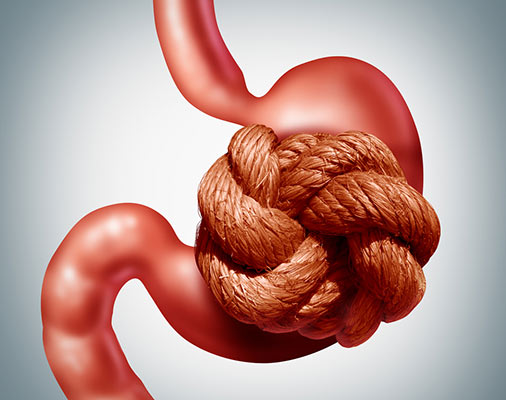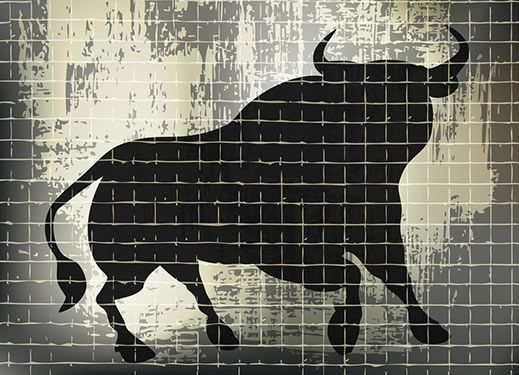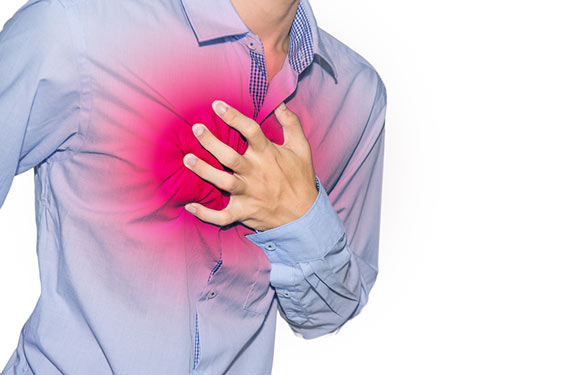Pain in the chest due to stress can be attributed to anxiety or anxiety since other pathologies or heart problems have been eliminated following the diagnosis made by a doctor.
The pain felt is oppressive, dull, oppressive, heavy, and can cause a burning sensation under the sternum. This pain can easily be thought of like a heart attack.
Fortunately, these chest pain spasms do not last long (no more than five minutes) and disappear with a little rest.
This similarity to the symptoms of a heart problem is disturbing, so even though chest pain due to stress is a relatively common problem, it is always better to consult a doctor before chest pain gets chronic.
The idea of not being immune to a health concern that could be the source of a heart problem is in itself a source of stress that everyone would be happy to do, right?
Causes of chest pain due to stress
When a person is the victim of a stress stroke, a series of physiological events take place in our metabolism to face the danger (real or imaginary) that is about to present itself: the survival instinct takes over and in our body, this does not translate into an increase in heart rate, an acceleration of breathing, a change in blood pressure.
The body is then subject to uncontrolled muscle tension. Some blood vessels undergo dilation to get the blood through faster areas that the body thinks it needs most, while other blood vessels will be blocked so that blood does not get through.
This phenomenon of self-defense
This phenomenon of self-defense can be dangerous in people who suffer from tachycardia, in people who have high blood pressure, and in people with arteries blocked because of cholesterol, calcium or coronary heart disease.
1. Stress, bloating and hyperventilation
Hyperventilation is a physical phenomenon (acceleration of the breathing, change in blood pressure) that may cause a feeling of loss of self-control.
Hyperventilation can also cause the feeling that something serious and definitive is happening and can lead to a panic attack, vertigo, tremors, even syncope (loss of consciousness).
This panic attack makes the situation unmanageable & unbearable: the subject may tend to close his eyes instinctively, feeling that he is fainting.
Although this is a situation that does not present any danger in itself (assuming the subject is not on a staircase when he loses consciousness), the panic attack is such a frightening event that just thinking about it can cause anxiety that may make it happen.
Hyperventilation also causes bloating and increased pressure on the lungs, partly responsible for chest pain.
2. Anxiety or heart condition
In order to avoid adding a layer of anxiety, it is useful to be able to distinguish between the two types of pain to attribute to them the right origin and not to panic unnecessarily.
If a heart condition causes chest pain, the pain may radiate from the chest to the shoulder and even to a cheek. Pain in the left or right arm is also possible. You might feel pain for more than 10 minutes, and when that happens, it is high time to go to the emergency room.
In pain in the chest is caused by anxiety, it will become more intense.
You might feel pain in the middle of your chest. The pain does not radiate beyond, and it passes relatively quickly (after 5 minutes).
Chest pain due to anxiety may or may occur after an anxiety episode or may occur for no apparent reason.
Chest pain due to anxiety may be temporary or permanent and may vary in intensity.
People who are anxious by nature are more likely to have chest pain due to anxiety than others.
Chest pain due to anxiety is usually induced by a phenomenon called the stress response.
The response to stress is a physiological, physical and emotional phenomenon that allows our body to protect itself against a stressful or anxious event, either by confronting it or by fleeing it.
The response to stress induces the body to tense to better withstand the pain that will happen (or not) and especially in the chest and chest. This tension, sometimes conscious but often unconscious, is mostly responsible for pain in the chest due to anxiety.

The 2 types of pain listed above also have some identical symptoms:
Abundant perspiration, a general feeling of oppression, difficulty in breathing again, a feeling of crushing in the heart.
Stress: how to reduce chest pain due to anxiety
It is by working on the anxiety that we manage to manage stress-related problems effectively.
The more you manage to calm your anxieties, the less you expose yourself to chest pain.
1.Control your thoughts
Do not hesitate to consult a doctor. Knowing that the heart and arteries are in good condition avoids anxiety about the subject and places the subconscious in a position of strength in relation to anxiety.
Stress is a sneaky enemy that is not fighting directly against stress but by adopting the right attitude to anxiety-provoking events.
If we provide the right arguments to our subconscious, it takes over anxiety every time, and it helps to avoid anxiety attacks, panic attacks, psychosomatic pain, anti-depressants.
2. Control breathing
Remember that this type of chest pain is often caused by hyperventilation, and even if one is not in a state of hyperventilation, keeping the breath under control is a great way to calm the nerves and bring the heart rate back to an acceptable pace.
By breathing slowly & amp; deeply, one can slow down the heart rate and at the same time, cope with the anxiety crisis or calm the panic attack.
Remember to focus on your breathing and your heart rate the next time you feel an anxiety attack.
When you focus on your breathing, you are already diverting some of your attention from the anxiety itself.
If you manage to control your breathing, ie you breathe slowly and deeply, your heart beats less quickly, and you put your body back into its normal operating state.
You will quickly realize that it is not very complicated and terribly effective to fight against a panic attack.
As soon as you understand the trick, panic attacks will be less and less frequent and eventually stop coming to torment you.
At one time in my life, I was prone to panic attacks. It had come to a point where, for a yes or a no, I found myself turning a blind eye: I could not do anything, I was paralyzed by anxiety and fear of being afraid.
Then I learned this deep breathing technique.
How to deal with panic attacks?
I do not really know where this self-defense technique came from, but it has proven to be an excellent treatment for stress, anxiety and to calm panic attacks. strong>
As soon as I felt the anguish rise and the crisis of panic arrive, I imagined myself in the middle of nature, in a field, being attacked by a bull mad with rage. Nowhere to go, no place to hide or take shelter, no chance to escape by taking my legs close to my neck and so, I confronted this rabid bull by focusing on my breathing: instead of let fear control my behavior, I took very long inspirations and I expired deeply.
And it worked perfectly!

I was focusing on the fact that, instead of fighting the bull, it was more useful to fight against myself to get my breath under control and that it was better immediately by breathing like this: the beast disappeared as quickly as he had come.
In less than a minute (watch in hand!), I was able to get rid of these panic attacks that had rotten my life for months.
Very quickly, the panic attacks became rarer until I realized that I had never had one again.
Bottom line
When chest pain is not cardiac, the only way to get rid of it is to learn how to handle stress. There are 1000 ways to fight against anxiety and stress, useful to varying degrees.
In general, the stress management techniques that put us in an active mode are the most effective.
Doing sports, yoga , walking, eating with friends, doing projects (as futile as they may seem), being curious, cultivating, getting involved, are all ways to deal with stress and anxiety that are more likely to be effective than antidepressants or homeopathy that may make sense, but remain passive ways to cope with stress and simply hide the problems, not solve them.
